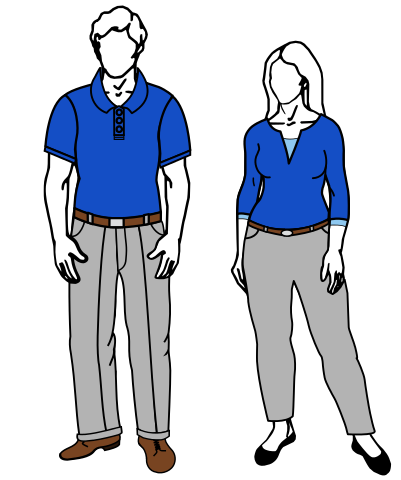 Connecticut - Jury Duty Laws, Jury Selection, Juror Qualification
Connecticut - Jury Duty Laws, Jury Selection, Juror Qualification
 Connecticut - Jury Duty Laws, Jury Selection, Juror Qualification
Connecticut - Jury Duty Laws, Jury Selection, Juror Qualification
Jury Duty in Connecticut - What to Expect
Page Navigation:
| Juror Qualifications in Connecticut - Who Can Be Summoned?
In the American court system, criminal defendants are guaranteed the right to trial by a "jury of their peers". In Connecticut, a pool of potential jurors is randomly selected from the local population of individuals eligible for jury duty.
A prospective juror must be:
- an elector or citizen of the United States.
- at least 18 years of age.
- have the ability to read, speak, and understand English
- be of sound mind to the capability of "rendering satisfactory juror service, being able to perform a sedentary job requiring close attention for three consecutive business days for six hours per day, with short breaks in the morning and afternoon sessions."
- have not been convicted of felony in the State of Connecticut in the preceding 7 years or acting as defendant thereto.
| Juror Selection in Connecticut - What to Expect?
How Are Potential Jurors Chosen in Connecticut?
The first stage in jury selection is summoning a pool of potential jurors from the list of local citizens eligible to serve on a jury in Connecticut, as described above.
Juror selection pool renewed yearly and comprised of registered voters, license or state identification holders, residents having filed personal income with Revenue Services in the last year, and recipients of unemployment benefits; in addition to carry-over names of jurors not served from the previous year.
Duplicate records merged or removed.
Receiving a Jury Duty Summons in Connecticut
If your name is randomly selected for the jury pool through the process described above, you receive a jury summons in the mail instructing you to appear for jury selection on a pre-set day.
While there are a few excuses for getting out of jury selection in CT, most people summoned will have to report to the courthouse for the next stage of the juror selection process, voir dire.
The Juror Selection Process, or "Voir Dire"
Just because you qualify to be a juror and are summoned for jury selection, doesn't mean that you will be selected to be a juror on a case. The process of "Voir Dire", the actual act of jury selection, is how judges, defense attorneys, and prosecutors actually choose the individuals who will sit on the juries for upcoming criminal and civil cases.
During the voir dire process, each lawyer will ask the pool of potential jurors a series of questions about their background, beliefs, prejudices, or relationships with any party to the case. While the goal is to select an impartial jury to render a verdict, each attorney will also seek to exclude any jurors who seem to be more likely to vote against their client's interests. While jury candidates are instructed to be open and truthful when answering such questions, the juror selection process is also where most individuals who don't wish to serve on a trial find a way to be excused from further juror duties.
What Happens After Jury Selection Day
If you are selected to serve on a jury, you will be provided with the trial date, and must return to serve on the jury for the duration of the trial and deliberations. If you were not selected to serve on any jury during the voir dire process, you can go home, and your Connecticut jury duty obligations are complete.
You will receive nominal Connecticut jury duty pay for the jury selection day, as well as for any days served on a jury. Once your service is complete, you won't be summoned for jury duty again until Connecticut re-adds you to the potential juror pool.
| Jury Duty Attire (Dress Code) in Connecticut

Jurors reporting for jury duty or jury selection in the state of Connecticut are expected to dress professionally, in a manner appropriate for a court room.
Most courthouses suggest dress ranging from business casual to business attire. For men, this means slacks or khakis and a polo or button-down shirt, potentially with a tie or suit jacket. For women, this means a professional-looking pair of pants or a skirt, cardigan, sweater, twinset, or shirt.
As a juror, you are expected to maintain a professional and respectable appearance while performing your duties. Hats should never be worn in a courtroom, and you should avoid wearing shorts, t-shirts, tanktops, or anything printed with logos or slogans.
| How Frequently Can I Be Called for Jury Duty in Connecticut?
While jury duty is a civic requirement for all eligible citizens in Connecticut, the state restricts how often you can be summoned for jury duty in order to ensure a fresh jury pool and prevent undue hardship by being summoned too frequently.
Connecticut Jury Duty Summons Frequency:
Lists are generated yearly, with names of jurors not served carrying over into the following year.
Jurors having sat in court are exempt from service for 3 years.
| What Happens If I Fail to Appear for Jury Duty in CT?
While there are a number of ways to be legally excused from jury duty in Connecticut, failing to appear when summoned for jury selection or jury duty without an excuse is illegal, and can result in legal repercussions.
Jurors who fail to appear shall be subject to a civil penalty established by the judges of the Superior Court on case by case basis.
Jurors may also be excused from payment.
Fines may be enforced by the Attorney General.
Employers in Connecticut are also forbidden from penalizing employees who miss work for jury duty.